If you’re familiar with the prevailing Western interpretation of Japan’s ikigai, you may relate readily to a similar and potentially more significant concept, kokorozashi.
Japanologist Nick Kemp is back, and with his guidance we’re exploring another fascinating Japanese idea, one beneficially applicable not just to life but to business.
Tune in for an informative listen that may change the way you think, work, live and relate to others.
Podcast: Download (Duration: 48:25 — 44.5MB)
Get Notified Of Future Episodes Apple Podcasts | Spotify | Amazon Music | Android | Blubrry | Gaana | TuneIn | Deezer | Anghami | RSS | More
Podcast highlights:
01:31 – Ikigai recap
03:44 – The fascinating game rich people play
04:43 – #9 the missing piece of ikigai
10:03 – Have you got the beginner mind?
13:03 – Some clarifying points on resonance
19:37 – Becoming a warrior with heart
20:50 – How the familiar gets lost in translation
23:39 – The etymological roots of kokorozashi
26:17 – Kokorozashi as relates to business
28:38 – Like the Western ikigai, only bigger
34:24 – The leadership component of kokorozashi
35:53 – A different view on owning things
39:14 – Points to develop your kokorozashi
43:28 – Has the thing got a Venn diagram?
Live an inspired lifestyle with help from James
Transcription:
James Schramko here. Welcome back to SuperFastBusiness.com. This is Episode 773, and we’re working our way through a whole bunch of Japanese terms. And I’ve brought along my special guest, Nick Kemp, who was my guest on episode 772, as well, and we were talking about the subject of ikigai. Welcome back, Nick.
Nick: Thank you for having me back, James. I got some sleep last night, and I’m probably not as nervous as I was last time. So thank you for having me back.
James: That’s great. I’m not sure why you were nervous. We’re not sort of at the Oprah, Joe Rogan level. But certainly, I know our guests really appreciate having people on this show who may not necessarily be famous, but are certainly passionate about what they do. And I love talking to people who can share things that are going to grow us as a person.
A quick look at the ep before
Let’s have a quick reflection on Episode 772. Because if you’ve just arrived at this podcast, if today’s your first SuperFastBusiness experience, welcome. But you may want to go back and listen to 772. And why would they want to do that, Nick?
Nick: They’d want to do that for a few reasons. But there are few corrections I’d like to add. And there was one of the ikigai 9 we missed. So I would like to go over that. And there are a few other important points I think we should share with the audience.
James: So Episode 772 was about ikigai. You gave us a nice quote that sort of tied it up in a little bow and wrapped it up neatly for everyone. Do you want to share what your definition of ikigai is?
Nick: Absolutely. So ikigai’s a life philosophy of daily rituals. I should have added in small joys, living your values, building intimate relationships, fulfilling life roles, and pursuing a life goal with a healthy sense of urgency.
James: Nice. So that’s what we talked about, so it’s well worth a listen. It was a longish episode.
Nick: Yeah, it was.
James: But it was close to my heart because of the history of it and how popular it is, like literally the most popular thing on SuperFastBusiness. Because so many people listening to this podcast resonate with my message of actually building a business that gives you a life that is enjoyable, rather than the hustle and the grind and the celebrated workaholism that is out there.
“Leave grinding to the baristas and enjoy your life more.”
And also, there’s that whole bunch of people who are doing things because their parents thought it was a good idea to go to university, or because they didn’t know what they wanted to do yet. If you don’t know what you want to do when you grow up, then that is a good episode to listen to. And I say leave grinding to the baristas and enjoy your life more.
So in this episode – and by the way, also a little shout out for my own book’s Work Less Make More. I think it aligns quite well with the whole discussion around ikigai, which is no doubt why my audience resonate with that podcast, and why 772 is destined to be a popular episode in our soundtrack.
But we’re not talking about that one today, are we? Firstly, let’s just cover the corrections. I know you have a sense of obligation to, you know, we’ve framed it so carefully as being the truth about ikigai. It would be the wrong thing to do to move past any corrections that you feel like you want to get out there off your chest. So go for it. Confession time.
A game for the very rich
Nick: Yeah. So I mentioned that the etymology of the word is made up of “iki” and “gai”, and goes back to this word kai, which means shell. And I mentioned that about 1500 years ago, there were these shells that were decorated. So I’ve just got the year wrong there, it was in the Heian period, which is 794 to 1185.
So I did a bit of research, and you could think of this game kai-awase as the game of bridge. I don’t know if you’ve had, my mother’s friends used to play it, and they were quite affluent. So maybe…
James: My grandma used to play it a lot too.
Nick: And that period, the Heian period, was considered the peak of Japanese Imperial Court and it was noted for its art and things like poetry and literature. So that’s where the shells came from. And I found out this game of kai-awase could have up to 360 shells.
James: Wow.
Nick: So that’s like playing that matching card game with 360 cards. So that’s pretty fascinating.
So that’s one point.
Mental space – the missing piece of ikigai 9
And then when I did the ikigai 9 with you, I only did eight.
James: Right. Well, let’s cover the ninth. The secret bonus mystery number nine finally revealed.
Nick: Yeah. So that was, I have room in my mind. And that means I have a room in my mind to contemplate my life, and to think about my goals, and if I’m satisfied. And I’m assuming that would be five for you on a one-to-five scale?
James: Absolutely. Is that something that speaks to open-mindedness? Or is it something that speaks to being able to accept more that there are things we don’t fully understand, that we’re still humble and ready to receive new things?
Nick: I think it’s more that you’re not stressed and overwhelmed, and that you have some control and freedom in your life to sit back and…
James: Oh, give me a 10. I’ll take a 10 on that one.
You know what I did before our call? I think it’s fun sometimes to talk about my life on my own podcast.
Nick: Sure.
James: Because I suspect it’s relevant. Even though I still feel a little uncomfortable talking about myself too much. However, you know, it’s been such a good day, I wanted to share this day. It’s a Friday, and I started the day with my daughter actually woke me up because she wanted me to feed her. She knows I’m the prime food provider in the morning.
And that was a great experience, sharing a meal. And I actually caught her dancing in her highchair while I was making the food. She couldn’t see me, so I knew she was like, genuinely doing it not to entertain anyone else, but just because she could feel the music in her body that was playing.
And then we went and took her for a swim, she had some swimming lessons, which she enjoyed immensely. It’s obviously a critical foundational skill for her, you know, eventual pathway into surfing, which I hope she enjoys. I certainly won’t force it on her. But I may or may not have a pink-colored surfboard here, that would be just right for her when she’s a bit older, if she decides she’s into it.
But she certainly likes scraping the wax off my boards with her fingernails. And she’s very keen to assist me putting the fins in when I screw them in. She’s showing interest there.
Nick: Oh, that’s lovely.
After that, we had my parents came over, and we just had the most fantastic lunch out on the deck there with the umbrella and the sun shining down here in Sydney. It’s great that they can visit, because that’s been a bit of a rare thing. And they can come over and we can enjoy a meal and not break any laws doing that.
Nick: Yeah.
James: And then after that, I spent a little bit of time with my son, my oldest son.
And I sat down, and just for a little while, I looked through a notepad that I’ve got. I found a notepad that I prepared earlier this year, I reckon it’s about six months old. And it had a whole bunch of notes on it that I was contemplating or thinking about. And there’s probably seven or eight pages on this pad. And it’s like I’m sort of taking care of my now self with my previous contemplations and thoughts.
And I was really excited, it was actually five or six pads, it was a little bit of a beautiful mind moment, I go through those every now and then, I just want to just get everything out of my head and put it on paper. And then I put it aside and I’ll leave it, and I found it again.
And I’m excited about it. I’m actually going to take this, I can tell I’m going to cross a lot of things off that are no longer relevant. Like, there’s actually stuff here relating to my live event, which was in March. And there was stuff relating to the Maldives event, which I can’t do anymore. But there was also stuff relating to my business model, which has actually really fallen into alignment.
And having that space just felt great. And then I just came back home with the wind in my hair. And here we are recording a podcast which I very rarely do, but I actually consider this on the same level as if I was going to sit in a big comfy chair and read for an hour or two this afternoon, which is something I would typically do on a Friday.
This isn’t work today. This is a chat with my mate Nick, finding out about something new. Because I’m going to say this for podcast two in our series. I don’t know what this term is. So you’re going to have to explain it to me.
Nick: Sure.
James: And even more importantly, you’re going to have to pronounce it for me. I don’t even know how to guess this one. I think last time you said it, I said “Bless you,” because I thought you were sneezing.
Nick: Okay.
James: Let’s do, I think we’ve covered that I have room in my mind.
Nick: Okay.
James: I’m totally cool with it. Only on that, I just wanted to say, I think that reminds me of that story of the guy seeking wisdom, who climbed up the mountain and got all the way to the top. And then he found that monk guy, you know, the expert, the sensei, whatever type of expert he was, sitting up there.
And the guy says, Would you like a cup of tea? Because the guy says, I want to know everything, I want you to teach me everything. And he says, Do you want tea? And the master is, like, pouring the tea, and the cup fills up. And then the cup gets to the top, and the sensei just keeps pouring and pouring. And he’s like, it’s full, like it’s going everywhere. What are you doing?
And he’s like, before we start with anything, you need to empty your mind.
Nick: Yes.
James: Your cup is already full. And if you’re basically closed to or have zero capacity to add anything new, or even worse, you’ve fallen for the trap of saying, I know more, you know, you think you’re an expert, then you’re bound to come unstuck.
And one of the things I used to teach rookie salespeople was about expert error. As soon as they thought they knew everything, as soon as they were experts, they would cut corners, and then their results would drop. As soon as I went back to basics, and taught them some humility and to be open, that there’s new stuff, that’s when they started reading new sales books and negotiation books and learning about the product on a constant basis.
So I think that’s a really nice one, number nine. Thank you for sharing that with us.
Have you got the beginner mind?
Nick: That’s alright. And what you’ve just said reminds me of another Japanese term, which is called shoshin, which is the beginner mind. And if you hold this beginner mind, just constantly through whatever you’re doing in your life, you’ll learn something. But if, as you said, if you think you already know something, yeah, you’re going to cut corners, you’ll come off as arrogant, and you’ll miss out on probably something meaningful, learning something meaningful.
James: I can certainly relate to that. For me, taking up surfing was entering beginner mind, on such a strong, metaphorical basis. It helped me help my students better. Because as well as I’m going with the online marketing and the online business stuff, and life in general, to get such a brutally difficult learning curve forced me to discover the systems I built for myself to optimize and to improve and to calibrate.
And I applied a lot of the lessons I’ve learned in life to learning how to surf, and I was able to progress fairly quickly, even though my body would fight me on it. And I had other challenges to deal with. But it was such a good thing.
And yesterday, I bought a new tennis racket, which is actually really hard to do at the moment. Supply of all sorts of things or goods is restricted. But I bought a fairly beginner racket, and I did that because I know I’m not Roger Federer. And I’m not, you know, pretending.
I used to do tennis as a school sport. I probably play at a reasonably okay, club level, where I can hit the ball back and forth and do a serve. And I know what the rules are. And I did it for several years at school. But I’m going to start from the beginning. So I’m not pretending that I’m amazing at this. And I start with humility, and I’ll start as a beginner, and then I’ll work my way up. And if I go well, and I do it more often, then I’ll buy a nicer racket down the track.
And one of the classic things people do when they start surfing is they go to too small a board quickly, because they want to look cool with it under their arm. But they’re impossible to balance on, and they’re so hard to paddle. And you don’t catch waves with them either. That’s how to get the most frustrating experience possible.
So thank you. This is a great one.
Nick: Yeah, it also reminds me of Tim Ferriss’s, I don’t know if he came up with it, but the idea of, be the weakest person in the room.
“If you’re the smartest person in the room…”
James: I’ve certainly heard the saying. You know, if you’re the smartest person in the room, you’re in the wrong room.
Nick: Yeah. So it’s interesting. Yeah, we all want to be great and good at something, but eventually realize, you know what, I don’t want to. Because if I am the best, I’m just not going to learn. I’m not going to grow. So, yeah, I’m glad we’re on the same page with that.
James: Yeah, and we’re not always going to be on the same page. You know, that’s why I had some resistance to some of the points in the last episode.
Nick: Yeah.
James: It really reminded me today, you know, hanging out with my parents is so nice. Some of the things they say reminded me of how I had to train myself differently. You know, if you’re carrying a glass of water, instead of saying, Don’t drop that water, which is what a lot of parents would say, I’ve retrained myself to think, hang on tight to that glass, keep a steady hand. So I focus on the positive thing I want, not focusing on the negative thing I might get, building anxiety and creating more stress and actually increasing the chance of that glass being dropped.
Some clarifying points on resonance
Nick: So on that point, I have put in notes, because I wanted to make sure you got the context of this idea of resonance and how it’s a need to be accepted by others. So it doesn’t mean you need to be accepted by everyone. And I do like how you question and challenge ideas on the podcast, because it stops people. It actually catches people when they stop and they think, okay, hang on, James is challenging. And it’s interesting, and it can highlight a point that other people wouldn’t normally think of.
James: Well, it’s super ironic, because the point I was challenging was that we should do things to be fitting in and accepted by others. So, you know, I’m not going to be accepted by everybody when I do that.
And I was thinking about it after the episode – why do I challenge those things? Why do I question? I don’t need to be deemed by Nick as a five out of five on everything if it’s truly not the case. Because, you know, it doesn’t matter. If I don’t agree with something, then I don’t agree with something.
And one of my mentors taught me, especially about books, because that’s where I used to glean a lot of my information. And he used to give me books to read and give me assignments, movies to watch. And he would say, just remember, a book is just someone’s opinion.
Nick: Yeah.
James: And I sort of extended that to say, well, also, a book is like, one or two pages of bullet points that’s been puffed out into what is deemed acceptable to have a book. And I’ve gone, where are the two pages of bullet points in this book is my mission.
And if I don’t like the book, you don’t have to finish it. You can throw it away. You can give it away. But I certainly, I think it’s good to question everything, even this episode. I don’t think every listener is going to agree with me. And that’s totally fine, because no two humans are the same.
Nick: Yeah, so let me re-present it, because it is a very important idea. And it was actually the foundation of her research in her book’s really important. So her research group for the book were lepers. And you have to understand, back in the 1940s, 50s, and 60s, they were shipped off mainland Japan and treated like criminals.
James: Treated like lepers.
Nick: Yeah. Literally, yeah.
James: Like, that’s actually the same, isn’t it? You’re treating me like a leper. I don’t think lepers get treated very well.
Nick: No.
James: They get talked about a fair bit in the Bible, too, from memory.
Nick: So yeah, they were shipped off to what, probably like the detention centers. They were promised this lifestyle of, living on an island, and it’d be wonderful. And they were separated from children, and they weren’t allowed to have children. So some of these people who lived on these islands, they didn’t see children for decades.
And Kamiya, Miyeko Kamiya, who wrote this amazing book, which we talked about in the previous episode, she wanted to work at one of these leprosariums, I think they call them, to do her research, so she could get her dissertation and then write her book. And she also wanted to help these people and also try and provide better conditions for them.
And so through her research, she used to do surveys of these lepers. And that’s how she came up with the seven ikigai needs. Obviously, these people felt ostracized from mainland Japan and society, but it was very important for them that they be accepted within their community. So the context of being accepted by others is in your personal community.
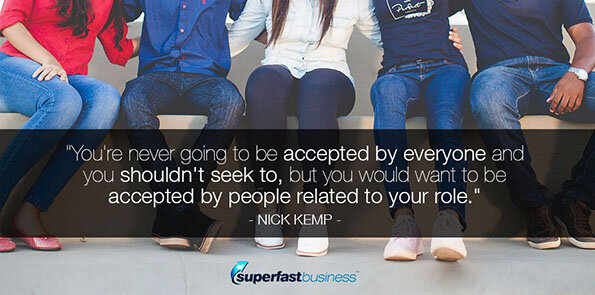 And so obviously, yeah, you’re never going to be accepted by everyone and you shouldn’t seek to, but you would want to be accepted by people related to your role. So your role, you know, as a father, as a husband, as a mentor. And we’re seeing what happens to people who don’t get accepted in their social group at the moment, with all these problems with teenagers either suffering from depression, or some, you know, committing suicide. So that’s sort of the context.
And so obviously, yeah, you’re never going to be accepted by everyone and you shouldn’t seek to, but you would want to be accepted by people related to your role. So your role, you know, as a father, as a husband, as a mentor. And we’re seeing what happens to people who don’t get accepted in their social group at the moment, with all these problems with teenagers either suffering from depression, or some, you know, committing suicide. So that’s sort of the context.
And I imagine for you, James, and I was thinking about this and thinking this would be so funny to say, but, you know, it’d be like you getting off this call and you decide to take your wife to the cafe. And she just suddenly says, Oh, I don’t want to go. You’re going, Well, why? And she won’t talk. And you say, Hey, what’s going on? And she goes, Well, you know, you’re embarrassing. You dress like a kid and you haven’t grown up – which would never happen.
Maybe you ring your friend Ezra and say, oh, man, look, I’m so looking forward to coming to Hawaii to surf with you, and it’d be like Ezra going, Oh, look, don’t bother coming man, like, which he would never say. So it’s the people who are really important to you, or who are in your personal community. If they don’t accept you, then yeah, unless you’re really highly evolved, it’s going to impact how you feel. And that’s why it’s an ikigai need. Yeah.
James: You know, those interesting scenarios, like most feedback, it always makes me question, what’s the basis for them saying that? And is it valid or not? And then I would decide if I want to do something about that, or if I think that I’m okay with whatever caused that, and it just is. Which is, you know, it’s pretty revealing in itself in terms of that thought process.
Nick: Yeah.
James: I’m thinking in a business context, when people accept me, and they’re happy that I know what I’m doing and they feel that I can help them be better off, then they’re going to buy from me. And that’s good for me, and it’s good for them. They get great transformation, and I get value exchange for what I’m able to do with them. You know, I get rewarded for all the thousands of books and the decades of experience that I can just tip their way within minutes. And everyone’s happy.
But if they didn’t accept me or whatever, there’d be a lot of hard work to do, I think, to make sales. You know, imagine if you had to do door-knocking or cold selling because people don’t know who you are. You don’t have a podcast or you don’t have little videos going out there or you haven’t been nurturing people forever.
Well, see about this. We don’t even run ads on our podcast. We’re just giving away content, you know? Thousands and thousands of hours over time, actually millions of downloads.
Nick: Yeah.
James: Mind blowing, when you think about it. I don’t know how many millions, probably four or 5 million now. And it’s just a long game, isn’t it? So thank you for clarifying that about acceptance and where that fits in.
I agree, it’s very important that kids feel loved and accepted. And that’s definitely been an issue. And it’s definitely hard being a kid anyway, no matter what period you grow up, or where. It’s probably a little bit more challenging right now for some of them. And I see that, and I’m dealing with different age groups with my own children out there. My cohort in the marketplace are bringing me all sorts of information back. So thank you.
Nick: That’s alright. No, it was important. So yeah, and I wanted to make sure you understood and that’s a really important need for, I think for everyone.
James: Look at that. We’ve managed to get this far into an episode and not even mention the subject of it, that will definitely be a record.
Nick: Let’s do it.
James: It’s really, this is like ikigai part two. Let’s transition to the real episode. What are we talking about today?
The warrior with heart
Nick: This relates to ikigai. And I love this word. I think I love this word even more than ikigai. Here’s the kanji, and I love this kanji. So the word is kokorozashi. Kokorozashi. And the kanji is made up of two characters. So the top, this part here, is warrior. And the bottom part is heart. So it represents the warrior, and heart can also mean spirit or mind. So I’ll send you that so the team can put that up on the post.
James: Yeah, we’ll put it up there on Episode 773. You can get the kanji, which is a symbol, from what I gather.
Nick: A Chinese character. Yeah.
James: It’s a Chinese character. That would explain to someone reading that what it is.
Nick: And so unlike ikigai, this isn’t out there. So it’s not misunderstood, which is a really good place to start from.
So it can have four meanings. And I’ll just say them now. So it can mean a desire to aim in a certain direction, a goal or objective set in one’s mind. That’s one, Number two, one’s way of thinking. So their principles, beliefs, and ideas. Number three, compassion for others, the feeling of caring for others. And number four, it can be a gift that expresses feelings of goodwill and gratitude.
How the familiar gets lost in translation
So this is a really good example of why Japanese are so difficult to understand, because their words can have multiple meanings. And that’s why words like ikigai, and this word kokorozashi, and wabi sabi, Japanese are unable to give you a succinct definition. And so if you ask a Japanese Oh, what does ikigai mean? they’ll gesture like this and go, Ah, difficult to explain. Sometimes it’s annoying for people. They think, well, hang on, you should know. But it really is hard to explain these concepts.
James: One of the things I got from the last episode is that they also don’t put that much weight on it. I’m wondering if we’ve been overhyping all these cool Japanese terms, because, you know, for us they’re new and exciting and interesting, or if they’re actually really awesome, but they’re just, they’re not something we’ve naturally adapted to.
Like, for example, you would say most Australians are pretty comfortable swimmers?
Nick: Yes.
James: But in other parts of the world, they’re not. So if you’re talking to an Australian about learning to swim, and how incredible freestyle is, we’d be like, yeah, mate. I’ve been doing it since before I could walk. Whereas for others, it’s very exciting. But it’s still an amazing skill to have. Is it like that?
Nick: It is like that. I was thinking about this actually, for wabi sabi. So I’m jumping ahead, but I was thinking about, what’s one Australian word, similar to all these words, and I realized, it’s made, it’s mateship. Right? Mateship.
So if someone said to you, James, what’s mateship? you would have to pause and think. And if someone asks someone else, you’d probably get these different meanings. Then you’d need to sit down and have a conversation. So well, it goes back to World War I, and it’s this idea of fair go, friendliness, and I can’t even explain it.
James: Mateship is simply, if someone’s going to move house, you offer to help them. That’s probably the definition of mateship.
Nick: Yeah, but I mean, imagine if you went to Japan, and there was a – well, not Japan. But let’s say you went to America or Europe, like, the UK, and there was a book called Mateship, and it was this thick, and it had a Venn diagram, and it was the secret to friendliness between strangers. You’d be thinking…
James: That’s not mateship.
Nick: That’s weird. So that’s how that ikigai concept got…
James: Gotcha.
Nick: That’s how you could interpret it.
James: That’s a perfect explanation.
Nick: Yeah. So I think for the Japanese, I feel they’ve lost touch. They’re losing touch with these words, which I think is happening with all cultures, we’re sort of losing touch with our essence. And Japan’s this country with years and years of history and unique culture.
But this word is used in Japanese culture, and it’s used in business. And this word, kokorozashi’s actually probably what people are wanting from the Westernized version of ikigai. So that’s why I think people will love this word. So in the business context, it’s having a personal mission. And it’s also the leader’s mind.
The etymological roots of kokorozashi
So if we look at the etymology of the word, so kokorozashi, there’s a verb form, which is kokorozasu, which means to plan, to intend, to aspire to, to set aims on. So if we take the word kokorozasu, if we take kokoro, that means heart or mind. And then sasu means to point. So it’s where your heart is pointed, or where your mind is focused on.
James: So would the Western version of that be, like, your true north?
Nick: Yes. But with much more sort of deeper meaning.
James: Much more soul. Of course. You could turn up the bass.
Nick: Yeah, of course. Definitely.
James: Better, of course, it’s a better one.
Nick: That’s why people love these words, because there’s this mystique about these Japanese words. And they’re fascinating, and they’ve got the kanji and…
James: I’ve got a friend who shapes surfboards, and he’s used the Japanese word on a his surfboard and he’s got Japanese models. It’s like, his brand is Yugen.
Nick: Oh, yeah.
James: His models are Iki, Wabi, and so forth.
Nick: Yeah, so they’re fascinating words, and there’s appeal to them. And that’s why people love sharing them. And that’s why I kind of understood why ikigai went viral.
So we could call this the heart beneath the warrior. Because there’s this idea that there’s this hard external layer, but a soft core inside.
James: That sounds like a Viking.
Nick: Yeah.
James: You know, like those Vikings films and those fantastic ones, where they’re such great warriors, but they’re also really spiritual and, and they’re tender with each other.
Yeah. So hard exterior, but this…
James: Yeah. Like, they look after their kids and they’re very family-oriented. But they also go off and plunder. You know, hard, really good warriors. Aspirational, I suppose. It’s probably part of our heritage. But you and I, not everyone listening to this. But certainly, there’s some little bit of Anglo Saxon lineage there.
Nick: There is, there is, yes. Yeah. So the hard warrior and this kind soul, which I think’s really appealing. I think it’s a good definition of, you know, being a man or a warrior.
James: Certainly being in business, there’s a lot of groups or business clubs where they’re talking about warrior. And, you know, it’s certainly an appealing marketing thing to get the manly sort of warrior who’s, you know, still able to have relationships and so forth.
And I think a lot of men need that kind of groove to set in, otherwise they’re going to be sort of namby pamby snowflakes on one side, or they’ll just be, you know, aggressive, hardcore, badass, naughty boys on the other side, it’s like somewhere in the middle, where you’re still manly, but still sensitive, more like the way of the superior man’s style.
Kokorozashi as relates to business
Nick: There you go. So, this is what we can gain from this one word.
So I stumbled on this word, of all places, on Udemy. And it was actually a course given by Globis Business School. Globis Business School. So it was actually a course by a Japanese company, presented in English by a Japanese who could speak fluent English.
And, you know, I took it and thought, Wow, what’s this word? And so as a business concept, it’s a personal mission that unifies the passions and skills of a professional to create positive change in society. So this is this big, ambitious goal. And I think it’s bigger than the ikigai, the Westernized ikigai concept.
James: So this is like an Elon Musk sized word.
Nick: Yeah. Maybe not. It doesn’t have to be to that extreme. But that’s what we’re talking about.
James: He’s someone I think is pretty extreme in terms of a changer of society. Driving that change. There’s like, some serious stuff coming out of there.
Nick: So yeah, so there’s vision. Elon Musk is a really good example, actually. There’s vision. So he has this vision, too. He has several. But to get to Mars, and to have electric cars. He’s got unity.
James: Hyperloop. Batteries.
Nick: Yeah, hyperloop, yeah.
And then he can’t do it himself. So he needs people to back him, sponsor him. He’s got to get the right talent. So he has unity, and he has people buying into his vision. And it will benefit society, everything he’s doing. So it’s a really fascinating concept. And it’s incredibly inspiring, even if you don’t have one. If someone else has one, you can jump on board and say, Yeah, I want to support your kokorozashi.
James: And does it have to be positive change in society? Like, would you say this won’t apply If you’re a supervillain, for example?
Nick: Yeah, it would not apply to a supervillain. No, it has to be definitely something that’s benefiting society.
James: What if it starts benefiting society, but then it turns out it wasn’t, like they’re talking about in The Social Dilemma? Places like Facebook – seems like a good idea. Let’s connect the world. But then it also starts to take on some different dimensions down the track. What if the founder had good intentions and let the genie out of the bottle but it turns into a cataclysmic holocaust?
Nick: Well, actually they have, one aspect of it is adjusting. So if they realize either what they’re doing’s not benefiting society, they’ll adjust. Or if it’s not achieving, if they realize, we’re not going to make the vision this way, they can adjust.
Bigger than ikigai?
But it’s funny you mentioned, you know, does it have to benefit society? Because I have a quote from the Dean of Globis Graduate School of Management. And he describes it as this. Imagine kokorozashi as an enjoyable life goal, a passion that occupies your thoughts on the weekend and makes you excited to wake up on Monday morning. Finding it requires imagination, and realizing it requires awareness. As such, developing a self-defined kokorozashi that benefits society is no easy feat.
“Kokorozashi = an enjoyable life goal, a passion that occupies your thoughts on the weekend and makes you excited to wake up on Monday morning.”
James: Nice.
Nick: So it’s like the Westernized ikigai concept.
James: It does sound like that.
Nick: But on steroids.Yeah, but just bigger.
James: So it’s bigger. It’s like, basically bigger than ikigai.
Nick: Yeah, the Westernized version of ikigai. Yeah. So it’s fascinating. And this Globis school’s actually an example of kokorozashi. So I guess the founder of the school, Yoshito, what’s his name? Oh, it’ll come to me. In the 80s, he went to Harvard, and he was guaranteed a plum job. And he didn’t want it. He wanted to go back to Japan and create a business school.
So he rented out a couple of rooms, he worked from his apartments, and started teaching business. And within the space of, you know, what, 30 years, it’s now Japan’s biggest business school. And now he wants to make it into Asia’s biggest business school.
And part of the program is, for MBA graduates, they have to have and develop a kokorozashi. They have to develop it, and present it, and then pursue it as part of their program.
James: Right. So it’s like their mission statement, and then they need an action plan, and then implementation.
Nick: Yeah. And there are, you know, there are business books on it. So this one is Kokorozashi No Chikara, so that’s The Power of Kokorozashi. So it’s something I stumbled on quite a while ago, but I haven’t had time to really research it. But I think it’s fascinating.
And then I found another quote from Shinzo Abe, who’s, as we know, just stepped down as Prime Minister of Japan. And he mentions it in a speech. So I’ll quote the speech as well, and it was a policy speech by Prime Minister Shinzo Abe to the 183rd session of Diet on February 28, 2013.
And obviously, this is translated, so…
So he said, “It is the responsibility of our generation to rebuild a robust Japanese economy in which young people are able to believe that the future will be bright. We will vigorously launch the three prongs of economic revival, namely bold monetary policy, a flexible fiscal policy and a growth strategy that encourages private sector investment.
“We will be able to deal with the dramatically changing global economy if we employ the same methods that we have used until now.”
And here it comes: “Japan’s economic growth depends on our will and our courage to set out to sea and sail without hesitation through the rough waves of the mega competition encompassing the globe.”
So the “will” in that last sentence, “Japan’s economic growth depends on our will and our courage to set out to sea and sail without hesitation…”
James: Nice.
Nick: That will is kokorozashi.
And what occurred to me last night was, Japanese as individuals, they’re very humble. They rarely talk about their ambitions or their achievements. They’re never, you know, thumping their chests and announcing what they’ve done.
James: We learned that from Karate Kid, right?
Nick: Yeah. But as a country, they’re very ambitious. And they do set big goals. And they’re, you know, they’re very resilient. And they do have this ability to unite. So it’s almost like a paradox.
James: We’ve seen that with their dominance of the car industry, at least up until electric cars. Toyota, for example, and Honda for motorcycles. They really have gone out. I love that external focus – we’re going to look out in the world, we’ll find those battles, and we’ll go and win them.
I talked about on this podcast a few times, how well the Japanese companies have done that by going out and doing their research and practicing, and then sharpening up. In one of the episodes, I talked about how they decided to take on America, from Toyota, and they went and lived, they’ve sent students to live with American families.
And then they used the Australian marketplace as a practice run. And then they designed a brand just for America, called Lexus, which stands for Luxury Export US, and basically went and socked it to Cadillac, and even the Germans, and took on the market.
So they’ve been very good at lowering the cost per employee for manufacturing, etc. They got a big hand from W. Edwards Deming.
Nick: That’s right. Yes, yeah.
James: The war, in a way, gave them a reset, they got a fresh start.
 And we can learn from that, too. If you’re listening to this episode, and life’s a bit messy for you and you’re not loving it, you can always do a fresh start using this concept. It might be time to develop your own kokorozashi, and start from now, with this new mission and action plan and implementation. That would be my hope from this episode.
And we can learn from that, too. If you’re listening to this episode, and life’s a bit messy for you and you’re not loving it, you can always do a fresh start using this concept. It might be time to develop your own kokorozashi, and start from now, with this new mission and action plan and implementation. That would be my hope from this episode.
And these are not short episodes compared to what we normally publish. But they’re so important. This is the fundamental driver.
And it’s no coincidence that on the bulk of the higher level coaching students I have where I spend a fair bit of time with them, getting to know them and their business, it really always boils back down to that inner drive and sense of mission and how willing they are to commit to the transformation that is required to get the result they want to get. It all ties in. This makes sense. It’s kind of like the little bits of the puzzle are joining together now and I can see it in more definition and full color compared to normal.
So how do we develop our kokorozashi?
The leadership component of kokorozashi
Nick: Yeah, well, before we jump in that, there’s sort of one more aspect that’s really important. And that’s leadership. I mean, you’re a very good leader, James, in terms of, you know, you practice what you preach. But you want others to experience what you experience. And you’ve said it yourself that you want your students to succeed more than you do.
So you have your unique style of leadership. And without it, you know, there could be several thousand people out there now still working a crappy job, because you’ve touched so many people with your membership, with your SilverCircle, SuperFastBusiness. And even, I’m sure there are people who just listened to your podcast and they’ve made changes.
James: Definitely. Only a fraction of the podcast audience buy. And that’s still, that fraction is enough, though one or two percent or three percent. You know, but if you’re listening to this, and you haven’t ever bought anything from me, I encourage you, at least go and buy Work Less Make More. It will change your life.
But aside from that, yes.
Nick: Yeah. So leadership’s important.
James: I think with leadership, I’m happy for them to have the best life they can have. Basically, I don’t want them to have what I have. I want them to have what they would like to have. That’d probably be very different than what I have.
And it’s actually impossible to benchmark success from one to another. That’s why we should give up thoughts of Lamborghinis, or $10 million a year, because that is not actually what success equals.
And for everyone, it’s different. For me, being at the beach without a laptop is success. For other people, they’d be more than happy to be at the beach with a laptop compared to sitting in an office in the city, working for someone else. So there’s different stages of this journey, too.
When things own you
Nick: Yeah, I’ve always thought, with anything you buy, there’s a burden or responsibility to it. Like if I buy a guitar, and it’s sitting in the corner, and I don’t use it, I feel guilty. If it’s a really expensive guitar, you know, I could get paranoid and, you know, tell my son not to touch it and these things become just stressful elements in our
life.
James: Well, then you don’t own things, things own you.
Nick: Yeah, yeah, exactly. Now, I think it’s okay, obviously, if you’re passionate about surfing, yeah, test out as many surfboards as you like. And if you like playing guitar, yeah, buy several and make music on them. But as you say, something like a Lamborghini, where it’s associated to prestige and all the status crap, do you really need it?
James: Well, people don’t buy it for transportation. You could probably get by with a small scooter. It’s about as practical. You could probably fit the same amount of shopping in it as a scooter.
I mean, I learned a lot from the marketing people in the car industry. For cars like that, they will actually have a branding label of something along the lines of, hedonist. That Lamborghini screams, please give me attention. Look at me, how incredible am I, I’m better than you. It’s definitely a status thing.
There will be, of course, exceptions. There’ll be people who just love cars, or maybe they just fell in love with the story of Lamborghini, how he was a tractor manufacturer and he wanted to customize his Ferrari but Enzo Ferrari wouldn’t do it for him. So he said, well, stuff you, I’m going to compete with you and drive you into the ground.
And then he went into competition with Ferrari, because he was so pissed off as being a loyal Ferrari customer, that he wouldn’t make customizations, and that Italian passion comes out.
And then of course, there was the whole Ferrari versus Ford thing, and that whole story. So, you know, maybe you’re attached to the story behind it. I know when I purchased AMG, it meant a lot to me, because for me, it was finally being on the other side of the desk.
It was a decade’s long journey of serving, and test driving, and understanding the product and falling in love with the engineering of it, and the quality of it, and the fact that it’s handmade, and that some dude signs the engine. The guy who handmakes the engine in his own time, there’s no timer, gets to sign it at the end. And it’s put together by one person by hand. I mean, it’s phenomenal.
Nick: That’s fascinating.
James: And I absolutely love that 507 brake horsepower, as someone who really has had a big, big influence on cars in my life. It was definitely good to close that loop and enjoy and immerse myself in it.
But at the same time, certainly you do notice people look at you differently at the parking lot, or, you know, when you go and pick someone up or drop them off, they can’t help be impressed. So there is that.
But it’s also worth understanding, why do we want these things? What do they mean for us? So are we doing it for someone else, to accept us, or are we doing it because it’s our absolute pure passion? Gosh, we’re hammering that point, aren’t we? It just keeps coming up.
It’s so funny, because my Rolex is now locked up in my safe. You know, I don’t use it anymore. I don’t feel like I need it. Whereas it was absolutely critically important to me as a sales manager to make sure that the other people around me accepted me and understood that I was the man.
Nick: Wow.
James: It sounds silly saying it now.
Nick: Doesn’t it?
James: Yeah. But it’s just becoming aware of your own desires and motivations and acknowledging why we’re doing these actions. As soon as you start developing that, do it for you, not for everyone else, I guess is what I’m saying.
Nick: Yeah, I agree.
Points to develop your kokorozashi
All right, well, let’s see how we can develop your kokorozashi. So I’ve got a few points.
 So first, you need to reflect on yourself and recognize the difference that you make, or those differences that make you who you are. Because we’re all different, we’re all unique, we all have different values. So reflect on yourself.
So first, you need to reflect on yourself and recognize the difference that you make, or those differences that make you who you are. Because we’re all different, we’re all unique, we all have different values. So reflect on yourself.
Then the next step is to have a vision, a personal mission, and it’s a change you desperately want to make in society or that will help society. And it has to be big, it has to be impressive, so that other people will want to jump on board. It must be ambitious so that others will want to support you in achieving your mission.
James: I want to stop on that one, because I mentioned in the last episode I’m currently building my Work Less Make More in 30 days, is my sort of pilot draft for it. Maybe it’ll be different when it emerges. But my goal with that is to make it shareable. My ambition is that people who are not happy with however life’s working for them at the moment could see themselves being transformed within a month of starting. And it’s free. And they’ll just feel like, this is so good they want to share it.
That’s my goal with that, because I really feel like, as you said, with the podcast reach, with the book out there, I want to get past where I can get with the paid book. I want to make sure people actually get the transformation.
Whether they buy the book or not, whether they buy a membership or not, it’s still going to be great if they share it with others. And they can actually experience some of those changes that happen when you start valuing your time, you start valuing your relationships, you start working in areas that tick all your buttons, whether you want to call that ikigai or kokorozashi.
It’s important that that message gets out there. So I can really align with that, that others will support me. And they will support me by sharing it. They’ll hit the share, they’ll tell people about it. And that’s the main thing. In fact, that’s the one word I want to focus on more from this point forward, is I want to make sure my content is more shareable.
I’m hoping people will share this episode with someone who needs to hear our message.
Nick: Yeah.
James: And that’s why this is actually a really different type of episode than what we normally have. We normally have a 25-minute tactical, technical, how-to style episode. This is a lot more heart-centered. But we’re going to go at it with a warrior mission. Sound familiar?
Nick: It does. I’m so glad to be sharing it with you. So let’s move on.
So we’ve just said, yeah, it’s got to be big, ambitious, so that other people will want to support you and partner with you. And obviously, you must lead. So if it’s your vision, you have to lead it. So that’s just obvious.
And then if you do partner with someone significantly, you know, there’s someone who’s going to buy in or support you with money or become a partner, they must share your core values. Or if they have a similar mission or vision, and you’re going to work together, it has to be in line with yours. And I think you know how important that is, James.
James: It’s everything. You know, I was reflecting with my buddy, John Lint. Him and I have partnered on 10XPRO. We speak every week. We live in different countries, we both share a love of surfing and food and helping people. His customer support, my customer support are very good for our customers. We have such strong values alignment that when we work together, it’s such a great collaboration.
And that’s what I look for in a business partnership, any kind of partnership, is where you, gosh, you could actually describe that as mateship.
Nick: Yeah.
James: We’re getting back to that term again. But I would help him move house. You know, he’d help me move house. That’s really the test if you’re really mates.
Nick: Yeah. And they offer to. You don’t have to ask.
James: Yes. That’s right. And they bring around a case of beer, or cider if you’re gluten intolerant.
Nick: Yeah, yeah.
So I love this word, because it opens up discussion and it does excite you. Just looking at the kanji, talking about this, really just excites, man. I have all these multiple kokorozashi now that I’m thinking about.
“If the vision gets blurred – adjust.”
And so the last step is, take action and adjust. So what we discussed earlier, if the vision gets blurred, or we realize we’re going in the wrong direction, yeah, you can adjust so you know you’re back on. And you’re being this warrior, but you have this soft – not soft – but you have this true heart and you are being, you know, it goes back to being yourself, your true self.
James: Nice.
Has the thing got a Venn diagram?
Well, let’s wrap this up.
Nick: Yeah, let’s tie it up.
James: You know, I’m wondering if you’ve got a Venn diagram for that one.
“Not all of us want to be Elon Musk.”
Nick: I do. I mean, I do have a Venn diagram for ikigai, but I’m working on it. I’m getting it checked with my, I’ve got a mentor in Japan who’s helping me out with that. So maybe that’s in another episode. But I did think, you know, this kokorozashi actually is quite big, and maybe it’s too big for our audience, because not all of us want to be Elon Musk, or not all of us want to invent the new time machine.
James: I don’t. I like my sleep too much, for starters.
Nick: Yeah.
James: I like my sleep, and I want to spend time with my family.
Nick: So yeah. So after doing further research, I did speak to several Japanese entrepreneurs, and I actually came up with a framework that we could apply to your audience. So for entrepreneurs who are – oh, I guess not entrepreneurs, but would-be entrepreneurs or people wanting to maybe start their own online business. I think we can describe – I should have printed it out.
James: That’s okay. We’re going to put it up there at 773. And so this is Nick’s special custom SuperFastBusiness version of kokorozashi.Nick: Kokorozashi, yeah.
So imagine three interlocking circles. In the top circle, you have your personal mission, so the change you want to make that will benefit society. And then I guess, to your right, there’s your tribe, the idea of having 1000 true fans could be your tribe. And then the other circle is content. And so all those three circles interlock.
So between your personal mission and tribe, where they interconnect, you have leadership. And obviously leadership can be done in multiple ways. You can blog, you can podcast, you can do video.
James: Coach.
Nick: Coach.
“Where personal mission and content intersect, you have your team, because you can’t do it all yourself.”
And then where personal mission and content intersect, you have your team, because you can’t do it all yourself. And you can be a member of your own team. But yeah, you’ve got to have a team. And then where content and tribe meet, that’s where you have your products and services.
James: Nice.
Nick: And then I guess in the center, we can put kokorozashi. So it’s just a snapshot of what kokorozashi could be for your audience.
James: Yeah. Love it.
Nick: I love it, too. I think it’s pretty cool.
James: It’s been a good episode. And so we’ve basically discovered the more appropriate version of what ikigai is for someone listening to this podcast. I love that. I learned a lot today, because this is a brand new topic for me. And I’m actually looking forward to our next one, which is about wabi sabi. And, you know, there’s books on that one, too.
So there you go, Nick. Where can we find out about you, because you’ve been such a generous sharer? You know, I couldn’t have done this episode without you. If I’d done any kind of research on this, it would have taken me a long time. That’s what I love about your passion. You’ve done the research, so we don’t have to, and you brought along the goods. So you’ve got more information whereabouts?
Nick: You can go to IkigaiTribe.com. And if you don’t mind, James, if I promote, I actually made a very concise, short book, just a Kindle, on ikigai. And it’s called Ikigai Demystified. And if you go to Amazon, you’ll see it, because it’s got the Venn diagram with Warning, not ikigai, on the cover.James: We’ll link to it from our show notes.
Nick: So yeah, it’s only seven bucks. And if you read it, you’ll be more qualified than all those life coaches teaching the Westernized version of ikigai.
James: And what did you put as your author name, Nicholas, or Nick Kemp?
Nick: Nicholas Kemp. And I did a bit of ninja marketing. I actually put my wife’s name, because she helped me, as her maiden name. So Kaoru Hayashi. The authors are Nicholas Kemp and Kaoru Hayashi.
James: It makes it sound very authentic. Love it.
Nick: Yeah. I saw there were so many ikigai books, actually, on Amazon, Kindles. And I saw this one comment, and this guy wrote, Another Westerner writing about a concept they know nothing about. So I thought, Oh, I need to address that. So I’d better put my wife’s name, because she did help me.
James: Very good.
Nick: So there you go. I probably learned that from you, James. So thank you.
James: My pleasure. Alright. Well, thanks, Nick. I’ll catch you on our next episode, where we’re going to talk about wabi sabi.
If you listened to this episode and you enjoyed it, please give it a review or leave a comment or share it with someone. As always, if you get any email from me, you’re welcome to reply. I read every email. Let me know if you need any help, if you want some coaching, if you’re not sure what solution is best for you.
If you want to get in touch with Nick, you can send me an email, I’ll forward it to him. Thank you so much for listening.
Nick: Thanks, James.
James: That’s it. We’re an ad-free podcast for now. So we’ll catch you on the next episode.
Access world-class business and lifestyle coaching inside JamesSchramko (membership).
Liked the episode? Leave us a review on iTunes
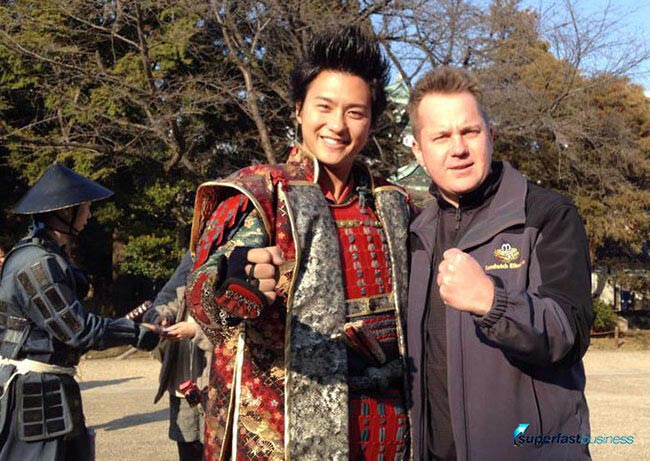
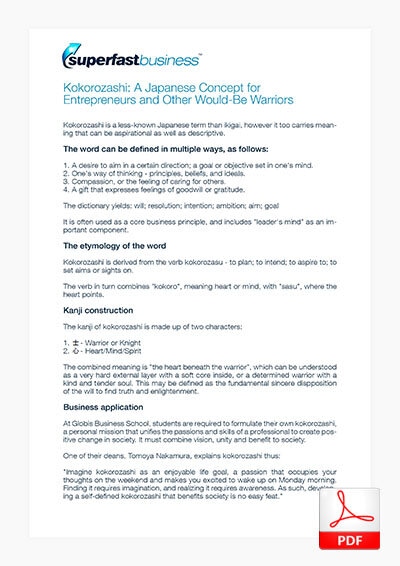
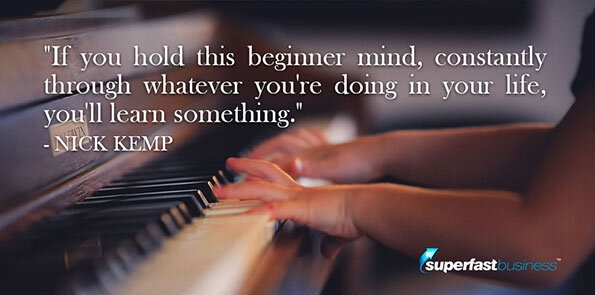
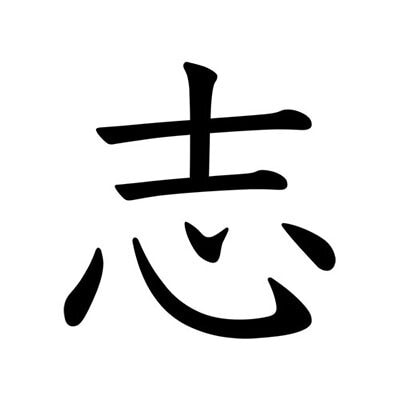
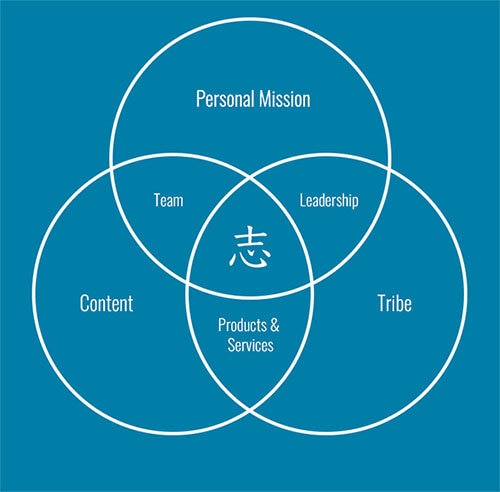
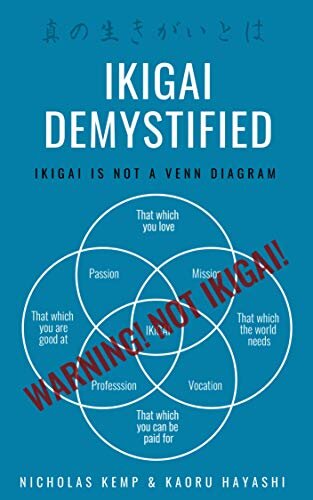

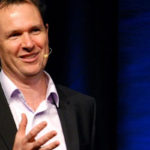







Leave a Reply